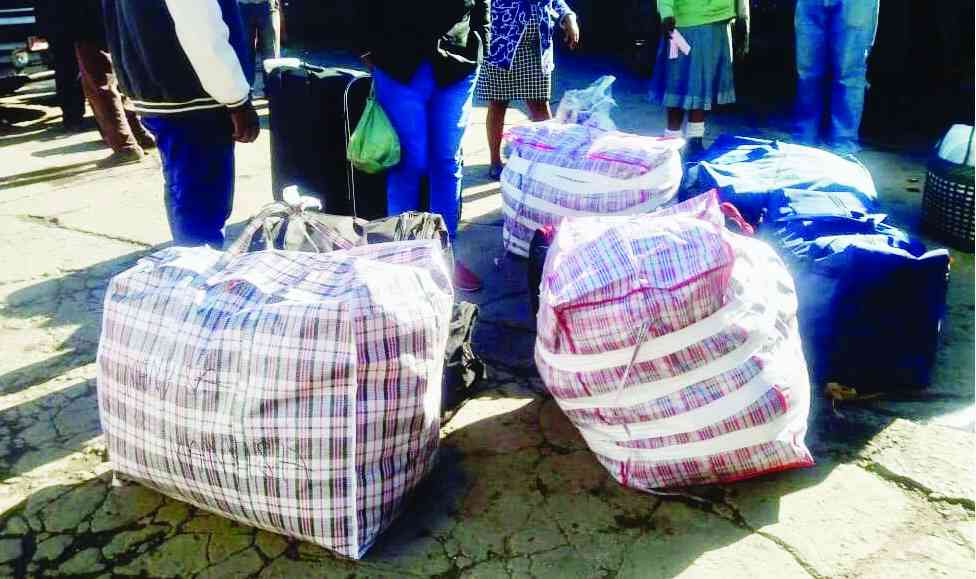
THE rhythmic swish of her mop against the cool, tiled floors of the sprawling Waterfalls home in the city of Harare is a familiar soundtrack to Sharon Nyemba’s life.
At 45, her hands, scratched by years of domestic work, move with practised efficiency, polishing away the grime of a life far removed from her own.
She is a single mother from Chihera village in Betera, Buhera, under Chief Nyashanu, who works hard to send her children to school.
But today, the usual hum of her work is punctuated by a deep sigh, a weariness that settles not just in her shoulders, but in the very depths of her being.
Nyemba carries the weight of a mother’s love and a mother’s despair.
Her son, Kupakwashe Tengu, a bright-eyed boy with a thirst for knowledge, should be preparing for his Ordinary Level examinations this year.
These examinationss are the gateway to a better future, a chance to escape the hardscrabble life of their rural village.
But Tengu is not registered.
- HCC considers cancelling ZimPhos contract
- We're not immune to prosecution: Land developer
- Govt to blame for Mupedzanhamo chaos
- City of Harare, Augur deal legit: Supreme Court
Keep Reading
The reason, Nyemba whispers, her voice thick with unshed tears, lies in a grocery bag and a journey gone wrong.
Last month, she had finally saved enough for her son’s registration fees and first term school fees.
It was a significant amount, carefully gathered over two months.
She packed the money, more carefully than usual, placed it inside her groceries where not even a sangoma coul find it and entrusted the bag to a driver she had used for a long time.
She called her son, Kupakwashe in the village, her voice filled with anticipation, telling her to expect the delivery.
But the call that came the next day shattered her hopes.
The groceries had arrived. The bag was there. But the money: Nowhere to be seen.
“My son and my daughter were crying on the phone,” Nyemba recounts, her voice trembling.
“They searched everywhere. Inside the mealie meal, under the sugar. There was no sign of money.”
“I work hard here,” she tells NewsDay Weekender, pausing her cleaning, her gaze drifting towards the shaped garden outside.
“Every month, I save, little by little, for my children school fees, for books and other needs. This time I had a Form 1 and the other one in Form 4. So, after saving the money for my daughter who is now in Form 1, I then started saving for Kupakwashe’s school fees and examination fee.”
Adds Nyemba: “I usually send money and groceries by bus. I put the money inside a small sock and then place it under the groceries so that I can pay only US$3 for a bag of groceries.
“They charge US$5 when you want to send money to the village by bus and I did not have US$7 that day. I had US$3 for the grocery bag.
“But this time around, when they delivered the grocery bag, the US$150 was missing and the registration deadline was on March 18, just four days before I sent the money.”
The bus conductor, when contacted, denied any knowledge.
There was no way to trace the missing money, no one to hold accountable.
She could not put blame on the bus conductor because she never mentioned the money which was inside the grocery bag.
The impact on Kupakwashe has been devastating.
He understands the sacrifices his mother makes, the long hours she toils.
The fact that he will not be able to sit for his examinations hit him hard.
Nyemba feels the weight of his disappointment like a physical ache.
She still has hopes to raise money for her son’s examination fee since the Zimbabwe School Examination Council extended the deadline to May.
“It’s my fault,” she whispers, her eyes glistening.
“Maybe I should have told the driver. Maybe I should have found another way.”
But in the reality of her circumstances, there were few other options.
The lack of accessible financial infrastructure in her rural area has left them vulnerable, reliant on a system rife with risks.
Mobile money, a lifeline for many in urban Zimbabwe, is unreliable in her remote home.
The network signal is patchy, and the nearest EcoCash agent with enough cash is a dream for many.
Like many others from her village working in Harare, Nyemba relied on the bus.
Every month, when she had enough, she would carefully count out the money, wrap them tightly in a piece of cloth, and it them deep inside a bag filled with groceries for her family, cooking oil, sugar and the occasional treat.
She would hand the bag to the driver or conductor at Mbare Musika long-distance bus terminus, a bustling hub of activity and a vital link between the city and the rural areas.
“We trust them,” Takunda Timola, who also works in Harare, explains to NewsDay Weekender how they have a long existing relationship with bus conductors.
“They know us. They know where we come from. It’s been like this for years.
“The reason most people cannot send on EcoCash is the unavailability of cash.
“They will give you an option to cash out by buying groceries, but our relatives in the village need cash.”
Buhera district Ward 20 councillor Alderman Felix Nangatidza expressed concern over the unavailability of mobile financial services that can provide customers with cash in hand.
He said there are no registered financial services like EcoCash, but only grocery shop dealers, who end up forcing people to cash out in exchange of groceries on top of exorbitant charges.
Nangatidza pleaded with financial service institutions like EcoCash and Mukuru to extend their services to remote areas so as to find a solution to the cash crisis.
Doug Tait-Knight, chief executive officer of Mukuru Zimbabwe Financial Services, reflected on the company’s drive to improve its financial services in remote areas like Nyashanu village.
He told NewsDay Weekender that the company was in the process of reaching out to many remote areas to provide smooth cash transfer in a bid to meet global financial digital transformation.
Tait-Knight highlighted that it is also important to conduct a cost benefit analysis before setting up business in some remote areas.
“We cannot operate in an environment where we keep making losses,” the Mukuru Zimbabwe Financial Services CEO added.
“We are already in some rural areas, but this time, we are working to cover almost all rural areas across Zimbabwe.”
This informal system, built on a fragile foundation of trust and necessity, is the only viable option for many like Nyemba.
There are no receipts, no tracking numbers, just a verbal agreement and a silent prayer that the bag will reach its intended destination intact.
Nyemba’s story is not unique.
Across Zimbabwe, countless families in rural areas rely on this precarious system of sending cash through buses.
They are the unseen threads that connect urban prosperity with rural survival, their hard-earned money travelling in bags alongside groceries and personal belongings, vulnerable to loss and theft.










